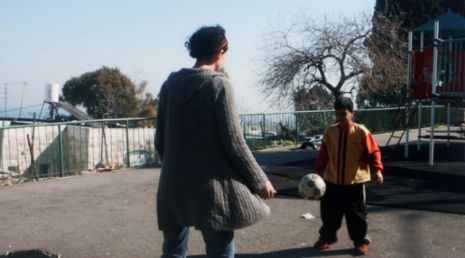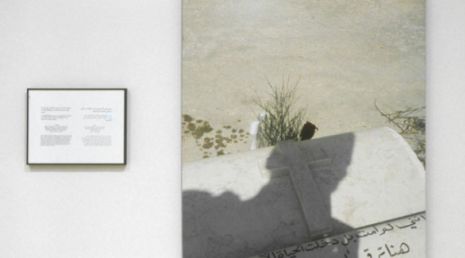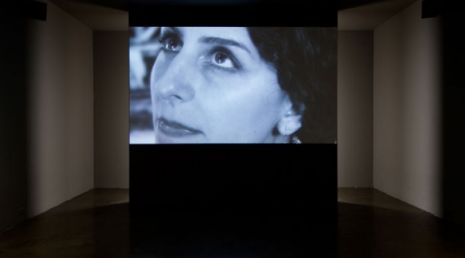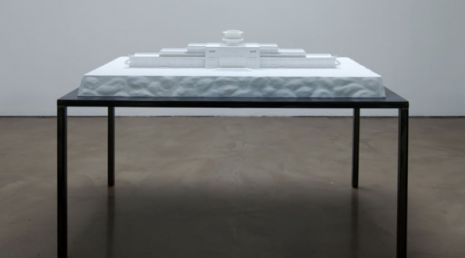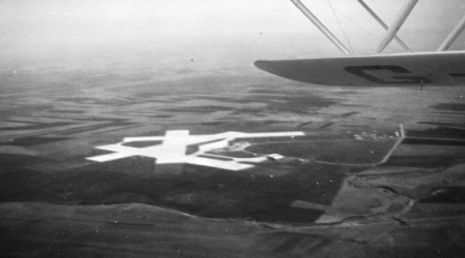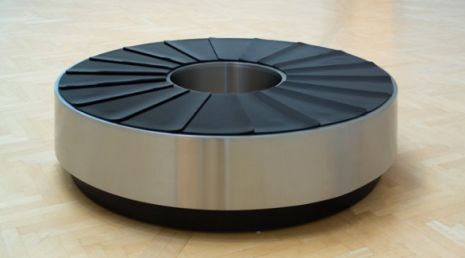If
The word "if" signals the conditional tense, the unrealized, the not or not-yet, the world of imagination and desire. Beginning a question with the word "if" indicates, or initiates, a relationship between questioner and respondent.
In her project, Where We Come From (2002), Jacir, asked Palestinians who are prohibited entry into their own homeland and/or who are restricted movement within it, "If I could do anything for you, anywhere in Palestine, what would it be?"
From Edward W. Said essay on Where We Come From, his last published piece:
"... Emily Jacir's series...cuts through...reducing an intractably untidy mess to the simple, humane question "What can I do for you in Palestine, where you can't go but I can?" Having done what was asked of her, she further reduces the answer to a creative juxtaposition of wish, wish fulfillment, and wish embodied in picture and text: writing and image elegantly brought together with a clarity that most Palestinians cannot experience in the present.
Her compositions slip through the nets of bureaucracies and nonnegotiable borders, time and space, in search not of grandiose dreams or clotted fantasies but rather of humdrum objects and simple gestures like visits, hugs, watering a tree, eating a meal - the kinds of things that maybe all Palestinians will be able to do someday, when they can trace their way home, peacefully and without restriction."
It should be noted that Where We Come From could not be made today. Jacir, and other Palestinians with foreign passports, are no longer allowed to enter Gaza, as well as certain Palestinian towns in the West Bank. Increasingly denied entry into the country by Israel at all border crossings, many Palestinians have been forced to immigrate.
To enter the domain of "if" is to imagine.
To imagine collectively is to create communitas.
Taking the private desire into the public zone is to cross forbidden lines, to humanize the respondent, to refuse to be portrayed by the Other.
Intervention literally means "coming between," in other words a kind of bridge.
...They grew, and became the bridge
they grew, grew and became
larger than all poetry.
From Song of Becoming by Fadwa Tuquan, trans. by Naomi Shihab Nye
Lydda Airport is a short film that takes place at the eponymous location sometime in the mid to late 1930's. Built in 1936 by the British, Lydda Airport was an important stop along the "Empire Route" for their national airline, Imperial Airways. Until 1939 it was the world's largest aerodrome. Central to the film's narrative is Hannibal, one of the eight planes that made up the Handley Page fleet which were the largest passenger planes in the world at that time. In 1940, Hannibal mysteriously disappeared somewhere over the Gulf of Oman en route to Sharjah.
The film was also inspired by Edmond Tamari, a transport company employee from Jaffa, who received a communication that he should take a bouquet of flowers to Lydda Airport and wait for the arrival of Amelia Earhart in order to welcome her to Palestine. She never arrived. On July 11, 1948, Lydda Airport was captured by the Israeli Defense Forces and renamed Lod International Airport. In 1974, the airport was renamed Ben Gurion International Airport.
Airports, those places in between, figure in Jacir's sculpture, embrace, from 2005. Standing motionless the piece sits silently until a person approaches; their presence activates the work and it starts moving, rotating like a baggage claim belt, the diameter equal to the artists height.
The work symbolizes, amongst many things, waiting and the etymology of the word "embrace."


